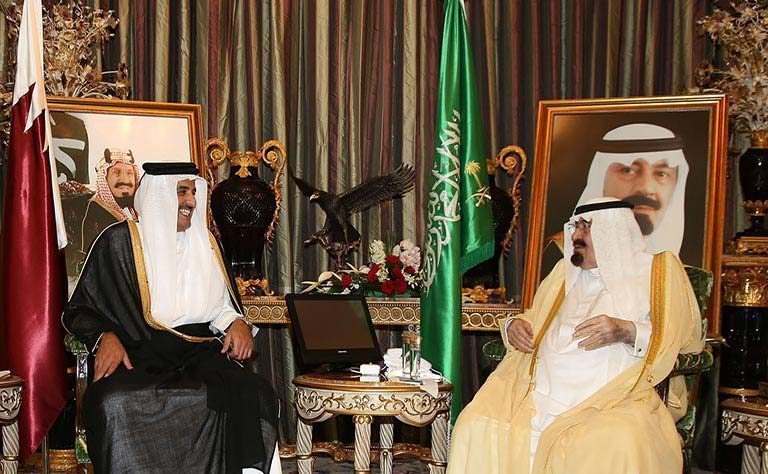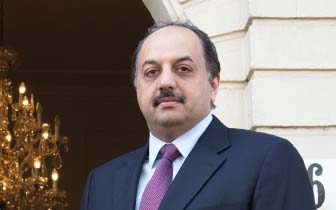
Qatar’s Emir returned from Saudi Arabia late Monday night following the latest high-level meeting between the heads of the quarreling Gulf nations.
Sheikh Tamim bin Hamad Al Thani’s one-day visit to Jeddah was at least the third time leaders of the neighboring nations have met privately since Saudi Arabia, along with Bahrain and the UAE, withdrew their ambassadors from Doha in March.
The diplomatic move was widely interpreted as a show of displeasure over Qatar’s ongoing support for the Muslim Brotherhood, which Saudi Arabia and the UAE both view as a threat to their authority.
Al Thani met Saudi Arabia’s King Abdullah bin Abdulaziz al-Saud in July for the first time since the rift was publicly exposed. A month later, three Saudi princes came to Qatar for an official visit ahead of a meeting of GCC foreign ministers.
Concessions made
The nature of those private discussions has not been disclosed, but Qatar appeared to make several concessions in the aftermath of the summit, namely expelling seven Brotherhood members from the Gulf state.
Additionally, a former government minister told Doha News that Qatar’s Emir signed into law new cybercrime legislation in September to comply with a GCC security pact.
The government has also recently introduced new rules on local charities that send money abroad. That move has been interpreted as a response to criticism that Qatar was turning a blind eye to individuals raising money for armed groups fighting in Syria.
These efforts, however, have failed to fully satisfy Saudi Arabia, according to one account of this week’s meeting.
‘More to be done’
A new Reuters report quotes an unnamed Gulf security source as saying:
“In the meeting, (Sheikh) Tamim basically wanted to tell the King that Qatar has met all the conditions that the King asked for and this should be enough to bring a formal end to the rift … There is progress to be recognised, but more still needs to be done.”
The source told Reuters that Saudi Arabia’s leaders remained unconvinced that Qatar has cut off funding for armed groups such as al-Nusra Front. Meanwhile, Saudi Arabia has also faced its share of criticism for reportedly financing or allowing its citizens to raise funds for similarly violent organizations in the region.

In recent months, Sheikh Tamim and his foreign minister, Dr. Khalid bin Mohammed Al Attiyah, have denied that Qatar endorses “any extremist group in any way” during their public appearances.
In a television interview late last month, the Emir told CNN that he did not accept anyone funding “certain movements” in Iraq and Syria, where Qatar recently supported an aerial bombing campaign against ISIL targets.
However, he also said that Qatar does not always agree with other nations over which groups should be deemed terrorist organizations.
Thoughts?







